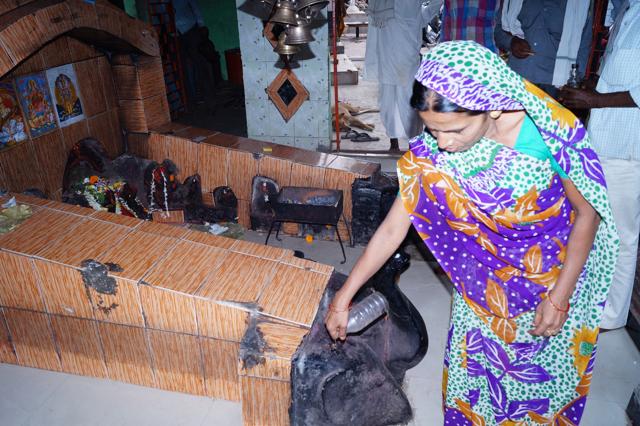Bihar’s liquor ban impact: Even local deities are going thirsty
With total prohibition in force, shrines of Dak Baba, Masan Baba, Goraiya Baba, Dihwal Baba, Naukha Baba, and Bhairav—all revered by the Dalit and Mahadalit communities among others—have gone virtually dry.
Several local deities are going thirsty, following the total prohibition of manufacture, sale, and consumption of liquor in Bihar.

There are many temples in the state where country-made liquor, toddy, and even IMFL (Indian-made foreign liquor) was mandatorily offered to the gods.
With total prohibition in force, shrines of Dak Baba, Masan Baba, Goraiya Baba, Dihwal Baba, Naukha Baba, and Bhairav—all revered by the Dalit and Mahadalit communities among others—have gone virtually dry.
In Gaya, the move has spelt doom for priests of many temples where the number of the devotees has shrunk considerably owing to the ban on liquor.
Last Saturday some devotes clandestinely procure the offering, for their deities. However, due to stepped up operations of police and excise department they were compelled to stay indoors with the stuff.
“Our God Kapal Bhairav accepts only liquor as his first bhog (food of gods). But after the ban about 40% of the devotees have chosen to stay away,” complained Anant Marathe, the priest of Godawari Mohalla Bhairav Sthan temple. Similar situation prevails at Dak Baba and Samshan Baba shrines.
In places such as Kauakol in Nawada district and Goraiyasthan in Maner (Patna district), there is an age-old tradition of brewing liquor at home, for offering to the family deity. Those who cannot brew, purchase the country liquor to please their gods.
”My family has been offering kalasam (vessel that holds ritualistic offerings) to our prandevata (deity) using liquor brewed in our house,” Babloo Kumar, a native of Goraiyasthan, told HT on Wednesday.
For the Musahar community, to which ex-CM Jitan Ram Manjhi belongs, offering liquor to Masan Baba is integral to their culture. They offer country liquor to the deity on all festivals, as well as on births, deaths, and marriage anniversaries.
“We offer liquor along with a live chicken to invoke Masan Baba, whose benediction helps us overcome sickness and fulfil our wishes. With the lawmakers depriving our deity of liquor, Masan Baba would be forced to migrate to some other place,” Manjhi feared.
Raghuni Manjhi, a resident of Sekhodevra village of Kauakol police station in Nawada, warns that the policymakers should be prepared to face the consequences if they persist with prohibition.
Experts point out that the government may relent if religious sentiments come into the picture. They hope that the government would grant concessions for ritualistic brewing and use of alcohol.





